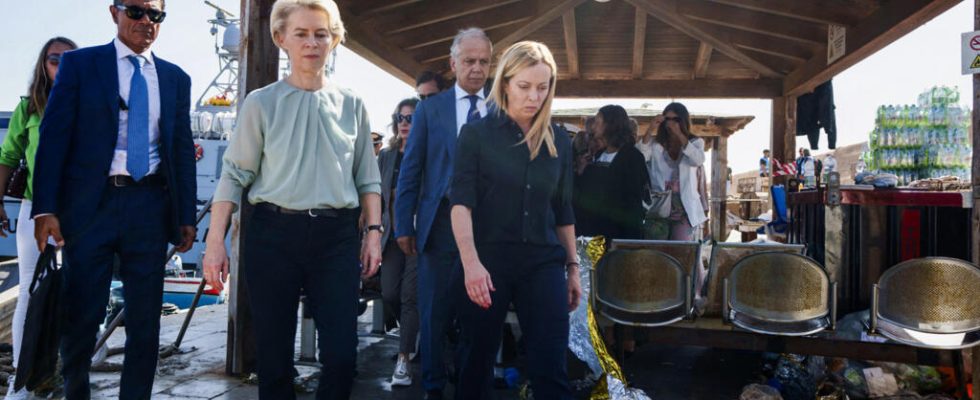Tightening of migration controls upon arrival in Europe, extensive collaboration between EU countries, these are the two major axes of the EU Asylum and Migration Pact. It was adopted yesterday by a narrow majority by the European deputies who finally approved this major reform even though political tensions remained high until the last moment. European migration policy had not changed for more than twenty years and the difficulties posed by its application regularly revealed tensions between the 27 countries of the EU. Now everything will be put back together
3 mins
with our correspondent in Brussels, Pierre Benazet
Because this new pact brings a truly profound reform of asylum and migration in Europe, after three and a half years of fierce negotiations. The first notable aspect was the disappearance of the Dublin rule which placed most of the reception of migrants in the countries of first entry into the Union. From now on, in the event of a massive influx, other European countries are required to provide support, for example by welcoming asylum seekers. And the big news is that in the event of strong migratory pressure, an asylum seeker will be able to submit a file in a country other than that of first entry.
The counterpart of this European solidarity is the notable tightening of entry conditions for migrants. Upon their arrival on European soil, they will be subject to new filtering rules, with biometric data and comparison of fingerprints in a common file. The aim is the immediate return of those who have already been refused entry, but this is also accompanied by an almost automatic return to the country of origin for migrants who are least likely to be granted entry. asylum. For example if they come from countries considered safe. And asylum applications must now be processed quickly and above all according to a common procedure.
Read alsoWhat is contained in the asylum and migration pact adopted by the European Parliament
Sometimes tough negotiations between political families
THE tensions around the Asylum and Migration Pact persisted until the last minute and even beyond since at the time of the first votes, NGO activists disrupted the session by chanting “ Vote no, this pact kills “.
Further proof that this pact is the result of a “European-style” compromise which really satisfies no one, the absence of applause at the end of the last vote while usually the deputies always welcome the outcome of the texts major.
We have seen the far right and certain conservatives welcome the withdrawal of the idea of compulsory distribution of migrants; on the left, we worked to ensure that all countries were united in terms of reception, but in reality the result is perhaps less the result of a political compromise than of a compromise between the 27 countries of the EU.
Poland resists
The Polish Prime Minister, Donald Tuskis aware that it will upset its European neighbors, but it has been clear: Poland will not accept the new mechanism for relocating refugees, underlines our correspondent in Warsaw, Martin Chabal.
The migration pact requires EU member countries to share asylum seekers among themselves, otherwise they will be subject to a fine. For Poland, this rule is not adapted to the current context. Since the start of the Russian invasion, almost a million Ukrainian refugees arrived in Poland. Impossible, according to the government, to welcome new refugees… For the Polish government, the solution for Europe is to secure the borders. And for that, Warsaw is ready to provide what it can rather than accepting this relocation program.
But Donald Tusk remains confident. He even hopes to be able to change the rules after the European elections in two months. Particularly because they believe that the pact was adopted just before the election to make an impression in the countries which are in favor of it… But that things could change, and Poland will be at the top of the list to oppose it.
Moreover, the members of the three political families in favor of the pact did not all vote for it. Conservatives, socialists and centrists represent 420 seats, more than the absolute majority of 353 seats. However, certain texts of the pact were passed with 301 votes. It is therefore ultimately the party of abstentions which won the adoption of the Asylum and Migration Pact.
Read alsoImmigration: outsourcing asylum requests, a contagious temptation in Europe
